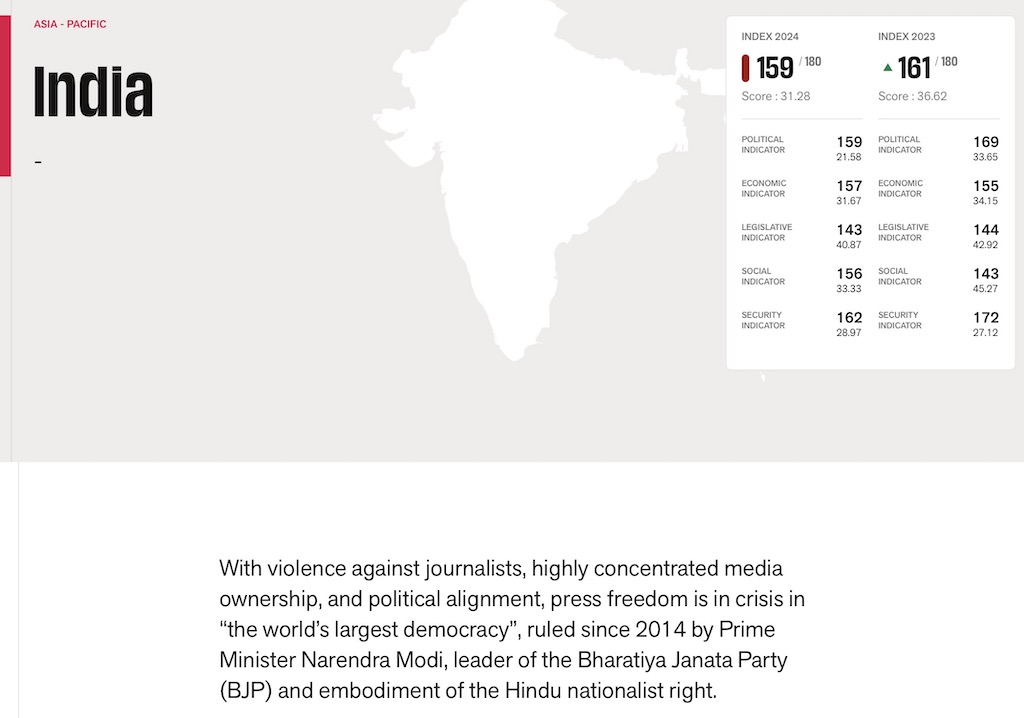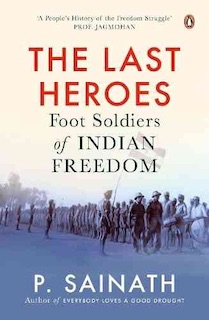ePaper | View or download the UNESCO global report 2021/2022 titled
“Threats that silence: trends in the safety of journalists; insights discussion paper: World trends in freedom of expression and media development” >>
41 pages : illustrations
The Centre has issued directions for blocking multiple YouTube videos and Twitter posts sharing links to the controversial BBC documentary ‘India: The Modi Question’ […] using the emergency powers under the IT Rules, 2021.
Source: The Telegraph, 21 January 2023
URL: https://www.telegraphindia.com/india/centre-blocks-access-to-bbc-documentary-on-2002-gujarat-riots/cid/1911284
Date Visited: 21 January 2023
The latest UNESCO World Trends Report Insights discussion paper “Threats that Silence: Trends in the Safety of Journalists,” highlights how surveillance and hacking are compromising journalism. Surveillance can expose information gathered by journalists including from whistle-blowers, and violates the principle of source protection, which is universally considered a prerequisite for freedom of the media and is enshrined in UN Resolutions. Surveillance may also harm the safety of journalists by disclosing sensitive private information, which could be used for arbitrary judicial harassment or attack. […]
May 3 acts as a reminder to governments of the need to respect their commitment to press freedom. It is also a day of reflection among media professionals about issues of press freedom and professional ethics. It is an opportunity to:
- celebrate the fundamental principles of press freedom;
- assess the state of press freedom throughout the world;
- defend the media from attacks on their independence;
- and pay tribute to journalists who have lost their lives in the line of duty.
Source: “2022 Theme: Journalism under digital siege”, World Press Freedom Day 3 May
URL: https://www.un.org/en/observances/press-freedom-day
Date Visited: 7 March 2023
India: 22 killed journalists
Source: India in FIGURE 3 by country, 2016–2020 in UNESCO Observatory of Killed Journalists
Date Visited: 7 March 2023
“[T]he Constitution gives equal respect to all communities, sects, lingual and ethnic groups, etc. The Constitution guarantees to all citizens freedom of speech (Article 19), freedom of religion (Article 25), equality (Articles 14 to 17), liberty (Article 21), etc.” – Supreme Court judgment quoted by The Hindu in “India, largely a country of immigrants” >>
In Marginalised but not Defeated, Tarun Kanti Bose (a seasoned public interest journalist) “documents the hard and difficult struggle to implement the Forest Rights Act, how the oppressed adivasis have united into forest unions, how they are now entering into new thresholds of protracted struggles and victories in a non-violent manner. […] A must for all young journalists, social science students, editors, civil society groups and the academia.” | Read the full book review here:
https://countercurrents.org/2023/05/book-review-marginalised-but-not-defeated >>
Learn more about “The world’s largest democracy“, its Constitution and Supreme Court and linguistic heritage, and why Democracy depends on Accountability in the face of Modernity and Globalization >>
“Every society had narratives about its past and some regarded them as history as time went on […] So your fantasy runs wild, you can concoct a utopia exactly as you want.” – Romila Thapar, during an interactive workshop on 22 August 2013 responding to a participant’s question: “Is there also the risk of creating fake history through the invention of tradition?” >>
We live in a world driven by xenophobia, jingoism and hyper-nationalism. That isn’t true just of our country. Populist politicians come to power saying, our country, our culture, our civilisation has all the resources required to solve our present problems and those who want a more open-minded approach to the world are anti-national. They are betraying the essence of our culture or our religion. I find this way of thinking deeply repugnant. It’s also contrary to the traditions of our freedom struggle – people like Gandhi and Tagore and Ambedkar and Nehru embraced the world.
Source: Historian Ramachandra Guha (author of India After Gandhi: The History of the World’s Largest Democracy) interviewed by Naresh Fernandes in “Hyper-nationalism is contrary to traditions of India’s freedom struggle”, Scroll.in, 6 March 2022
URL: https://scroll.in/article/1018777/ramachandra-guha-interview-hyper-nationalism-is-contrary-to-traditions-of-indias-freedom-struggle
Date Visited: 7 March 2023
How paranoid nationalism corrupts
[…] Our statistical analysis suggests that governments have grown more nationalistic since 2012, and that the more nationalistic they are, the more corrupt they tend to be. But the more important role of paranoid nationalism is as a tool to dismantle the checks and balances that underpin good governance: a free press, independent courts, NGOs and a loyal opposition.
Source: The Economist, 2 September 2023 (Date Visited: 3 September 2023)
UNESCO Headquarters, Paris has Called for Nominations for UNESCO/Guillermo Cano World Press Freedom Prize 2023.
Nominations should be forwarded to the Indian National Commission for Cooperation with UNESCO (INCCU) latest by 29th January, 2023 at the following address for further consideration and onward transmission to UNESCO Headquarters, Paris, France.
Mr. Saroj Kumar Choudhary
Under Secretary to the Government of India Ministry of Education Department of Higher Education Room No. 203-A ‘C’ Wing
Dr. Rajendra Prasad Road ShastriBhavan,New Delhi – 110001
Contact No.: +91-011- 2338 4442 E-mail: [email protected][…] Article 7 – Procedure for the awarding of the Prize
7.1 The Prize shall be awarded by the Director-General at an official ceremony held for that purpose on 3 May, on the occasion of World Press Freedom Day. UNESCO shall present to the prize winner a check for the amount of the Prize, together with a diploma and an object symbolizing the award. UNESCO shall officially announce the name(s) of the prize winner.
7.2 The prize winner, shall, if possible, give a lecture on a subject relevant to the work for which the Prize has been awarded. Such a lecture shall be organized during or in connection with the prize ceremony.
7.3 Work produced by a person since deceased shall not be considered for the Prize. If, however, a prize winner dies before he or she has received the Prize, then the Prize may be presented posthumously.
7.4 Should a prize winner decline the Prize; the Jury shall submit a new proposal to the Director- General. […]Article 9 – Appeals
No appeals shall be allowed against the decision of UNESCO with regard to the award of the Prize. Proposals received for the award of the Prize may not be divulged.
Source: Indian National Commission for Cooperation with UNESCO Government of India
Ministry of Education, Department of Higher Education
URL: https://www.education.gov.in/sites/upload_files/mhrd/files/unesco_cano_world.pdf
Date Visited: 7 March 2023

With an average of three or four journalists killed in connection with their work every year, India is one of the world’s most dangerous countries for the media. Journalists who are critical of the government are routinely subjected to online harassment, intimidation, threats and physical attacks, as well as criminal prosecutions and arbitrary arrests. They can be victims of violence, from police officers and political activists, as well as criminal groups and corrupt local officials. Proponents of Hindutva, the ideology of the Hindu far right, call for popular revenge against critics branded as “traitors” and “anti-national”. Terrifying coordinated campaigns of hatred and calls for murder are conducted on social media, campaigns especially violent when they target women journalists, whose personal data is divulged. The situation is also remains very worrisome in Kashmir, where reporters are often harassed by police and paramilitaries, with some being subjected to so-called “provisional” detention for several years.
“India Index” (2023 & 2024) by Reporters Without Borders (RSF)
URL: https://rsf.org/en/country/india
Date Visited: 3 May 2024
“The report titled, Who Tells Our Stories Matters: Representation of Marginalised Caste Groups in Indian Newsrooms, was released on 2 August. It studied the representation of people from different caste groups in the Indian media to document ‘who has a seat at the table and whose voice has a chance of being heard.’ It found that the ‘Scheduled Tribes are almost entirely absent, whereas the Scheduled Castes are represented mostly by social activists and politicians rather than journalists. English newspapers are worse than Hindi on representing Dalit, Adivasi writers.” – The Caravan, 3 August 2019 >>
[Bold typeface added above for emphasis]
See also
Adverse inclusion | Casteism | Rural poverty
Demographic Status of Scheduled Tribe Population of India (Census figures 2011)
Fact checking | Figures, census and other statistics
Human Rights Commission (posts) | www.nhrc.nic.in (Government of India)
Search tips | Names of tribal communities, regions and states of India
“What is the Forest Rights Act about?” – Campaign for Survival and Dignity
“Who are Scheduled Tribes?” – Government of India (National Commission for Scheduled Tribes, NCST)
“While occasionally some changes to my text were made without my consent, there was no attempt to get me to rewrite my column or change its arguments. Until …” – Historian Ramachandra Guha whose books include India After Gandhi and Gandhi: The Years That Changed the World (Column for The Wire, “Government”, 19 April 2020)

Adivasi | Books | Publishers >>
History | Success stories >>